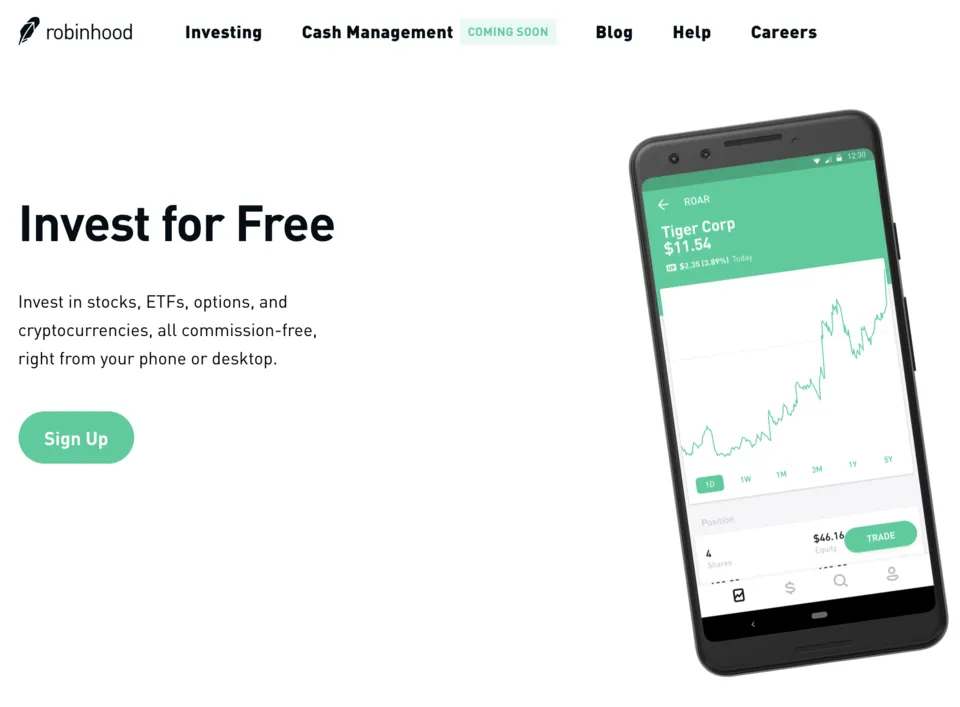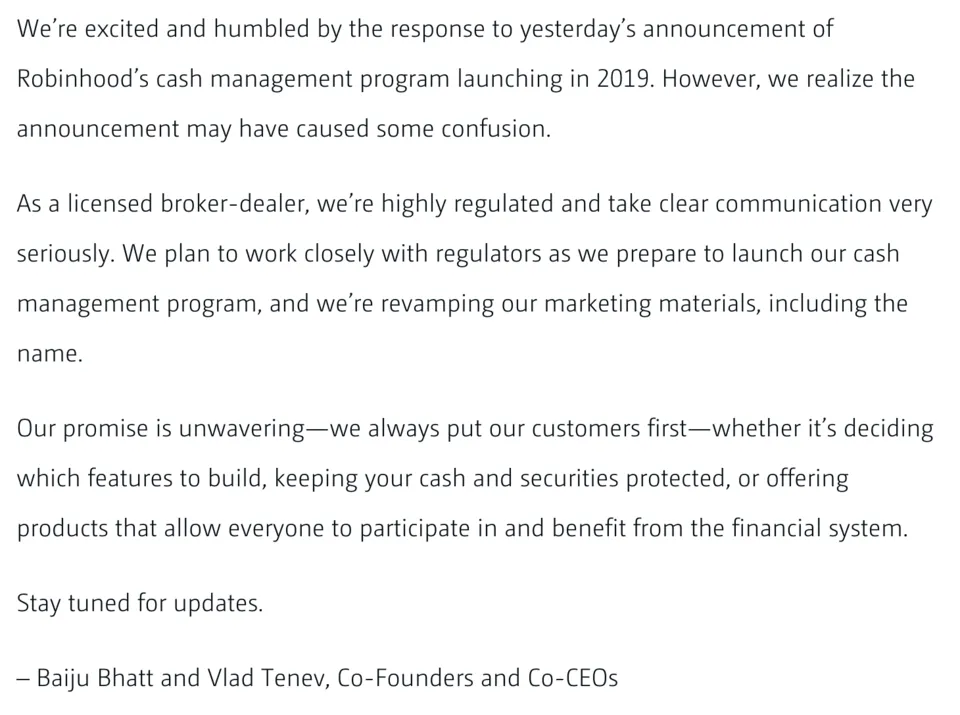
Given the positive marketing, they have definitely succeeded in disrupting the market as they reported earlier this year having over 4 million total accounts opened which surpasses another popular platform E-Trade which have been around since discount brokerages went online during the tech and dotcom era. This has also allowed them to fetch an almost $6 billion valuation for their business in their latest funding round. While many have been attracted to their platform, others have continued to wonder how they are able to provide free trading when other have not considering the amount regulatory oversight in these underlying business operations.
There have been a series of news as of late that have gone the other way for Robinhood. First, through reading some of their necessary regulatory disclosures, it was found that one of the ways they earn revenue is by providing user data to third parties. This includes trade information mostly but what caught my attention are who these third parties are. Mostly third parties are investment firms known to run high-frequency trading pools. These firm, through algorithms and technology, are able to capture data on trades coming into the exchanges and front-run bids and ask to undercut prices for those orders that arrive shortly thereafter. This provides them a profit with every trade as they always have a supply of orders to fill on each side. These firms are said to now represent over 50% of all trading volume on stock exchanges. Therefore, while Robinhood customers see a free transaction, they are really paying more given the participation of these high frequency pools.
The latest news to bring some controversy was their announcement of providing new checking and savings accounts with offering 3% interest rates on deposits. They announced this feature by adding that it would be a nonbank account. They had originally offered the product as a way to combat the traditional banking high or hidden fees for retail customers. Where they seemed to have made a mistake is to state that these deposits would be protected by the Securities Investor Protection Corp. or SIPC. The SIPC works similar to the FDIC in insuring deposits up to a certain amount in case of an institution’s insolvency. However, the CEO of SIPC, Stephen Harbeck, recently noted that the organization only protects cash deposited for the purpose of purchasing securities. Therefore, cash use as deposit accounts like checking or savings would not be protected. This even made the CEO contact the SEC about the matter. It seems to have caught the attention of Robinhood as they have posted a letter on their blog :

As we have seen in the cryptocurrency space, anytime there is an advancement in disrupting the traditional financial markets, participants will step in and try to protect the incumbents from further impacts. While this is an important situation to clarify for both existing and potential customers, it shows how much Robinhood has disrupt one industry and is now setting is eyes on another. These developments remind me when discount brokerages started to launch online which ensued in a price war for the benefit of its customer, investors and traders. Prior to the proliferation of online brokers, most commissions were charged a percentage of the total transaction amount. This limited the amount of customers that could have access to investment accounts. However, as competition fired up you would see fees as low as $4.95 a trade now while some are even offering an amount of annual trades for free in order to retain and attract clients.
Many have said that this has also led to competition in the cryptocurrency exchanges as well. Whereas, only a few dominated before the hype, many now have stepped in to offer competing services at attractive prices. Given the recent declines in prices, other have started to list more assets to expand their offering as well. The increase in decentralized exchanges has also led to interesting development in the access to cryptocurrencies in general as well. In summary, the spark that Robinhood has brought to the industry has been interesting and continues to benefits not only its development but also the value provided to its customer. However, as usual, nothing is ever truly free…

Follow me on Twitter: @NAICrypto
If you are like me and interested in continued personal growth, invest in yourself and lets help each other out by leveraging the resources they provide by using my referral link:
https://www.minnowbooster.com/referral/530636
Start your collection of Steem Monsters today at my referral link:
https://steemmonsters.com/?ref=newageinv

DISCLAIMER: The information discussed here is intended to enable the community to know my opinions and discuss them. It is not intended as and does not constitute investment advice or legal or tax advice or an offer to sell any asset to any person or a solicitation of any person of any offer to purchase any asset. The information here should not be construed as any endorsement, recommendation or sponsorship of any company or asset by me. There are inherent risks in relying on, using or retrieving any information found here, and I urge you to make sure you understand these risks before relying on, using or retrieving any information here. You should evaluate the information made available here, and you should seek the advice of professionals, as appropriate, to evaluate any opinion, advice, product, service or other information; I do not guarantee the suitability or potential value of any particular investment or information source. I may invest or otherwise hold an interest in these assets that may be discussed here.